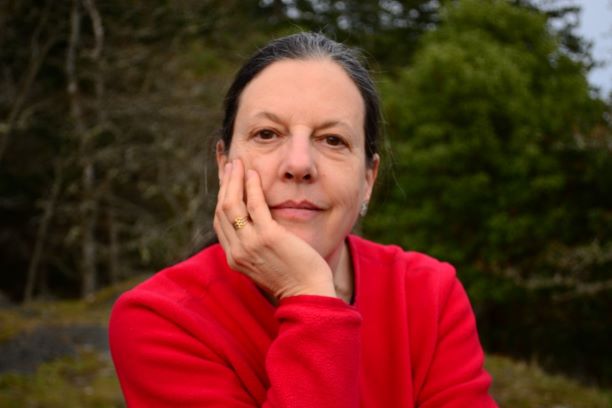The Other Extinction Rebellion: Countering the Loss of Biocultural Diversity
-Event-

Start Date: Mar 05, 2021 - 10:00am
Location: Presented via Zoom
Dr. Luisa Maffi presented her talk The Other Extinction Rebellion: Countering the Loss of Biocultural Diversity as part of the Spring 2021 Anthropology Colloquia Speaker Series on Friday, March 5 at 10 am.
Between the COVID-19 pandemic, climate change, and biodiversity loss, global existential crises have been front and center in people’s consciousness in recent years. Climate change, in particular, has inspired a worldwide “extinction rebellion” movement that calls for urgent action to address the root causes of this rapidly evolving threat. By contrast, the ongoing loss of the world’s biocultural diversity is not, as yet, widely recognized as another crisis with far-reaching consequences for humankind. Terralingua—an international nonprofit organization whose seeds were planted in Albuquerque in 1995—has been arguing for the past 25 years that the diversity of life on earth should be understood not just as biodiversity (diversity of species and ecosystems) but as biocultural diversity, including as well the diversity of human cultures and languages. Our research has shown that all these manifestations of the diversity of life on earth are interconnected and interdependent: they either thrive or are threatened together, having coevolved through millennia of interaction between people and the natural world. And now the world is indeed facing not just a crisis of biodiversity loss but rather a “converging extinction crisis” of diversity in both nature and culture.
Why does losing cultural and linguistic diversity matter as a part of our global predicament? The world’s cultures embody a great diversity of worldviews, knowledge and value systems, and lifeways, which are expressed and transmitted through language. The more we lose the world’s languages and cultures, the less able we are to even realize that other ways of thinking and acting in the world are possible—in particular, ways of living more adaptively and harmoniously with nature. We become more and more funneled into the dominant, yet maladaptive, frame of mind and the resulting self-destructive behaviors.
That’s why at Terralingua we think it’s time for another “extinction rebellion”: a biocultural extinction rebellion. We believe that the extinction rebellion movement that is already afoot today should expand to embrace this wider, crucial dimension, and have begun to call attention to the need for that broader perspective.
In this talk, Dr. Maffi will highlight key aspects of that perspective, how it came about, and how it bears on present and future prospects for humankind. In that context, she will reflect on the vital importance of combining scholarly knowledge with on-the-ground action.
Dr. Luisa Maffi (BA, Linguistics, University of Rome “La Sapienza”, 1978; PhD – Anthropology, University of California at Berkeley, 1994) is co-founder (1996) and Director of Terralingua, an international nonprofit organization devoted to sustaining biocultural diversity – the interconnected and interdependent diversity of life in nature, culture, and languages. She is a pioneer and leader in this integrative field of knowledge and action, and spearheads Terralingua’s projects, which span research, policy, education, and on-the-ground work internationally. She also acts as Editor of Terralingua’s flagship publication, Langscape Magazine, which illustrates the concept of biocultural diversity through stories, poetry, photo and video essays, and artwork from all over the world.
With a background in linguistics, anthropology, and ethnobiology, Luisa has conducted fieldwork in Somalia, Mexico, China and Japan, as well as worked with First Nations in British Columbia, Canada, where she lives. She has written extensively on the topic of biocultural diversity, including the foundational books On Biocultural Diversity: Linking Language, Knowledge, and the Environment (L. Maffi, ed., Smithsonian Institution Press, 2001) and Biocultural Diversity Conservation: A Global Sourcebook (L. Maffi and E. Woodley, Earthscan, 2010). She has held a US National Science Foundation postdoctoral fellowship at the University of California, Berkeley (1994-1997) and a National Research Service Award fellowship from the US National Institutes for Health at Northwestern University in Evanston, Illinois (1997-2000). She was a Research Associate in the Anthropology Department at the Field Museum of Natural History in Chicago, Illinois (1998-2003), and a Research Associate in the Anthropology Department at the Smithsonian Institution’s National Museum of Natural History in Washington, D.C. (1999-2004). She is an International Fellow of the Explorers Club (New York).
Hosted by the Department of Anthropology, the Alfonso Ortiz Center for Intercultural Studies, and the Latin American and Iberian Institute (LAII) the Department Colloquia Speaker Series will be held virtually via Zoom on Fridays at 10 am, and will be made available on our You Tube account following the event. Upcoming speakers include (more details forthcoming):
March 12 Pilar File-Muriel (UNM) and Chelsey Dyer (Vanderbilt University)
March 26 Katherine Starkweather (University of Illinois, Chicago)
April 2 Jonathan Dombrosky (UNM)
April 9 Osbjorn Pearson (UNM)
April 16 Jada Benn Torres (Vanderbilt University)
April 23 Nicholas Emlen (University of Tübingen)
April 30 Suzanne Gaskins (Northeastern Illinois)
May 7 Zwedi Tsegai (Max Planck Institute)
